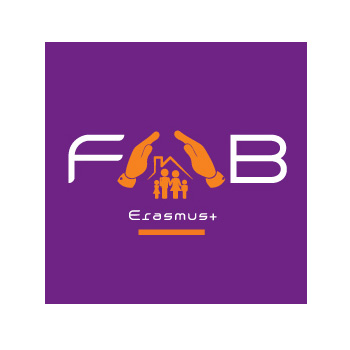Master’s programme

Family Business Management / FAB
Erasmus+ CBHE
619264-EPP-1-2020-1-KH-EPPKA2-CBHE-JP
11/2020 – 11/2023, 36 months
999.264 €
Greece, Portugal, Cyprus, Cambodia, Malaysia, Philippines, Bangladesh, Bhutan, Nepal
Visit the Project's Website
Follow the project on Social Media
Master’s programme
The FAB project addresses the ‘Business and administration’ Regional priority and it addresses the unique challenges that family businesses in 6 Asian countries (Cambodia, Malaysia, Philippines, Bangladesh, Bhutan, Nepal) face, that hamper their growth and development. It is worth mentioning that according to the latest statistics of the CBHE call only one Curriculum Development project has been funded under this priority.
Among the top 25 countries with the largest number of family-owned businesses, 11 are in Asia including Malaysia (7th), Thailand (8th), Indonesia (9th), Philippines (11th), and Singapore (17th) (The Edge, 2017). These are impressive figures given that family businesses are mostly Small Medium Enterprises (SMEs) with few outstanding large multinational firms that are well established in the region. For most of the established family businesses, the challenges confronting them are embedded in their strategic direction as they face the volatile market conditions today. Although equipped with key management acumen inherent in family relational commitment, there are still challenges which are not easily overcome. Skilled staff are sometimes difficult to find as many may shy away from family businesses where nepotism may prevail and for some, such businesses may be too restrictive to allow for clear career path. Significantly, research done on family business has centered around the survival rate of such business because researchers confirm that only one third of family businesses survive the transition from founders (first generation) to the second generation of owner-management. And of those, only one third tend to survive the transition from second to third (and beyond) generation of ownership (Poutziouris, 2000; Wang et. al., 2000; Ibrahim et. al., 2001). Hence, key success and sustainability of family businesses lie with effective succession which may prove to be quite challenging for businesses where new generations of successors may not share similar business vision as their forefathers. It is on this note that there is a need to understand further the entrepreneurial inclination of those managing family owned businesses in addressing the issue of sustainability and their ability to contribute effectively to the economic growth of the country.
The FAB project develops a new master’s degree in Family Business Management supported by (a) a VET professional training course, (b) centers of excellence that promote cooperation, innovation and career development and (d) a VLE consisting of an Academic Space, a Virtual Library and Massive Online Open Courses.
Objectives of the project
- Develop new specialized curricula and an innovative Master’s programme in Family Business Management thus helping build the capacity of the partner countries’(PC) HEIs, improve the level of competences and skills offered, and address the existing absence of a similar programme. The consortium will also research and formalise the design of multi-stage, mixed model MOOCs for Family Business professional courses, including non-formal and informal learning.
- Establish viable synergies and links with the regional family business sector in order to address their needs in terms of required professional skills in the field of entrepreneurship and family business management, training needs and enhance the employability of graduates.
- Reinforce the capacity of the PC HEIs by training their academic staff in the new courses and appropriate delivery methods. This will be achieved by organising study visits to EU HEI and capacity building training workshops in each PC as well as developing a training Virtual Learning Environment (VLE) to support the PC HEIs’ academic staff during and after the project.
- Reinforce the infrastructure of the PC HEIs by establishing ‘Family Business Centers of Excellence’ that will act as foci for research and innovation in the area thus ensuring that family business education will remain high in the regional priorities agenda for a long time after the project has been completed. The ‘Family Business Center of Excellence’ will promote entrepreneurial behaviour (including innovation) in existing family firms. It will act as a ‘family business contact point’ at national level and will promote better dialogue between the family business sector and the government and help convey the concerns faced by the sector into policy consultation processes.
Expected Main Results
The project outputs – namely the Master’s degree in Family Business Management, the FAB professional MOOCs and the ‘Family Business Centers of Excellence’ will directly benefit the PC HEIs but shall also have a wider and further impact on students, academic and administrative staff, policy makers and HE organisations in the target countries. The advanced, apprenticeship-focused curricula will bring together the academic world and the professional world to share knowledge, practices and to test processes to find innovative ways to tackle the problem of the distance between the two worlds.
The project will help not only to produce and share resources and ideas but also form policies by involving policy-makers and relevant stakeholders together with academics and practitioners. The gap between business and education will be reduced by promoting and actively supporting co-operation and exchange of good practices between academics, students and practitioners at national and regional level.
Project Partners
- National University of Management (NUM) - Cambodia - Leader
- University of Heng Samrin Thbongkhmum (UHST) - Cambodia
- Chea Sim University of Kamchaymear (CSUK) - Cambodia
- Build Bright University (BBU) - Cambodia
- Cambodian University of Specialties (CUS) Cambodia
- Royal University of Phnom Penh (RUPP) - Cambodia
- Ministry of Education Youth and Sport (MoEYS) - Cambodia
- Universiti Teknologi Malaysia (UTM) - Malaysia
- Universiti Teknologi MARA (UiTM) - Malaysia
- Ateneo de Manila University (ADMU) - Philippines
- West Visayas State University (WVSU) - Philippines
- Shahjalal University of Science and Technology (SUST) - Bangladesh
- Bangladesh Agricultural University - (BAU) - Bangladesh
- Gedu College of Business Studies (GCBS) - Bhutan
- Kathmandu University (KUSOM) - Nepal
- Pokhara University (PU) - Nepal
- University of the Aegean (UAegean) - Greece
- The University of Aveiro (UA) - Portugal
- University of Nicosia (UNIC) - Cyprus
- ReadLab - Greece
- Center for Social Innovation (CSI) - Cyprus
- AKMI S.A - Greece


